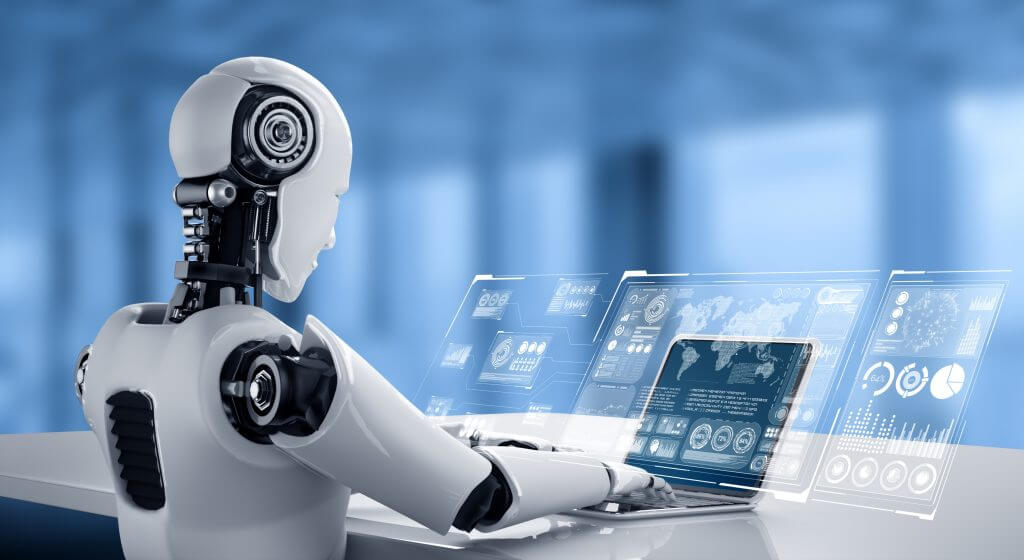7 Min Read

Search engine optimization (SEO) is an essential part of any successful digital marketing strategy. It involves optimizing websites to rank higher in search engine results pages (SERPs) for specific keywords and phrases. While SEO has been around for years, recent advancements in artificial intelligence (AI) are revolutionizing the way marketers approach it. AI is transforming the way marketers optimize their websites, analyze data, and deliver personalized content to users. In this article, we’ll explore how AI is transforming SEO and the implications for marketers.
The Role of AI in SEO
AI is playing an increasingly important role in SEO. Here are some of the ways AI is being used in SEO:
- Natural Language Processing (NLP): NLP is a subfield of AI that focuses on understanding and processing human language. It’s being used in SEO to help search engines better understand the context of user queries and website content. NLP can help marketers optimize their content for voice search and conversational search queries.
- Machine Learning: Machine learning is a type of AI that enables computers to learn from data and improve their performance over time. In SEO, machine learning algorithms are being used to analyze search data and identify patterns that can help improve website rankings.
- Image Recognition: AI-powered image recognition technology is being used to optimize website images for SEO. Image recognition can help marketers ensure their images are properly labeled, sized, and optimized for search engines.
Personalization and SEO
One of the most significant ways AI is transforming SEO is by enabling marketers to deliver personalized content to users. Personalization involves tailoring content and marketing messages to individual users based on their preferences, interests, and behaviors. Here’s how AI is enabling personalization in SEO:
- Natural Language Generation (NLG): NLG is a subfield of AI that involves generating natural language text automatically. It’s being used in SEO to create unique and personalized meta descriptions, titles, and content for each web page.
- Content Recommendation: AI-powered content recommendation engines are being used to deliver personalized content to users. These engines analyze user behavior and recommend content based on their interests and preferences.
- User Intent Prediction: AI is being used to predict user intent and deliver relevant content to users. By analyzing search queries and user behavior, AI algorithms can predict what users are looking for and deliver relevant content.
Automation and Efficiency

AI is also helping marketers automate routine SEO tasks, saving them time and resources. Here are some of the ways AI is improving efficiency in SEO:
- Automated Content Creation: AI-powered content creation tools are being used to automatically generate blog posts, social media updates, and other types of content. These tools can help marketers save time and resources while maintaining quality and relevance.
- SEO Audit and Optimization: AI-powered SEO audit tools can automatically analyze websites and identify SEO issues. These tools can also provide recommendations for optimization.
- Keyword Research: AI-powered keyword research tools can help marketers identify new keywords and optimize their content for those keywords. These tools can also help identify keywords that competitors are targeting.
Predictive Analytics and SEO
Another way AI is transforming SEO is by using predictive analytics. Predictive analytics involves using AI algorithms to analyze data and make predictions about future behavior. Here’s how predictive analytics is being used in SEO:
- Search Volume Prediction: AI algorithms can analyze historical search data to predict future search volume for specific keywords. This can help marketers optimize their content for high-volume keywords.
- Competitor Analysis: AI can be used to analyze competitors’ websites and identify their SEO strategies. This information can help marketers develop strategies to outperform competitors.
- User Behavior Prediction: AI can analyze user behavior on websites and make predictions about future behavior. This information can help marketers optimize their websites for user engagement and conversion.
Ethical Concerns and AI in SEO
While AI is transforming SEO in many positive ways, there are also some ethical concerns to consider. Here are some of the potential risks associated with AI in SEO:
- Bias: AI algorithms can be biased based on the data they’re trained on. This can lead to discriminatory practices and unequal treatment of different groups of people.
- Privacy: AI-powered personalization and recommendation engines require access to user data, which raises concerns about privacy and data security.
- Transparency: AI algorithms can be complex and difficult to understand. This lack of transparency can make it difficult to determine how decisions are being made and who is responsible for those decisions.
To summarize, the future of SEO is increasingly becoming intertwined with AI technologies. By incorporating AI, marketers can enhance their SEO strategies and stay ahead of the curve in a rapidly changing landscape. Nonetheless, it is essential to take into account the potential ethical implications and risks associated with AI.
As a digital agency, we urge businesses to prioritize transparency, data privacy, and fairness in their AI-powered SEO practices. Keeping abreast of industry developments and best practices will help ensure that AI technologies are used responsibly and in the best interests of customers and businesses alike. By embracing the transformative potential of AI while maintaining a commitment to ethical practices, companies can achieve their SEO goals and remain competitive in today’s fast-paced digital environment.
Related log articles:
https://digfinity.com/unlocking-the-power-of-ai-the-future-of-seo/
https://digfinity.com/google-clouds-latest-ai-tools-to-boost-customer-experience-for-retailers/



